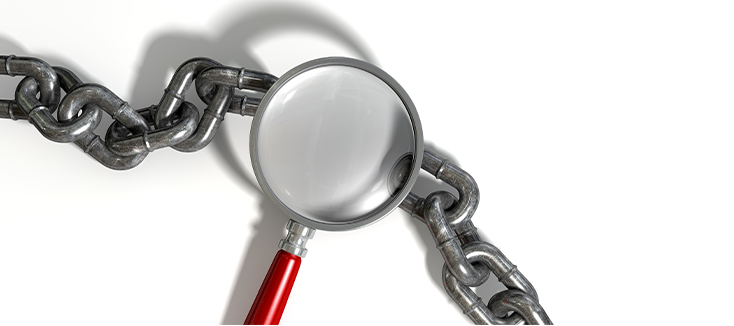Automated reprocessing of ultrasound probes has revolutionized infection control practices in healthcare settings, offering efficiency, consistency, and reliability in the disinfection process. This advancement is particularly evident in the reprocessing of various ultrasound probes, including transesophageal (TEE), transvaginal, transrectal, and surface probes. The impact of automated reprocessing on time efficiency can be observed by comparing the three most common methods: manual, semi-automated, and fully automated reprocessing.
Manual Reprocessing
Manual reprocessing involves performing each step of the disinfection process manually, from pre-cleaning to high-level disinfection and the final rinse. This method is labor-intensive, time-consuming, and prone to human error. For instance, manual cleaning requires thorough scrubbing and rinsing of the probe's surface to remove organic debris and contaminants. Subsequent high-level disinfection typically involves immersion in a chemical disinfectant solution for a specified duration at a specific temperature, followed by rinsing and drying.
Manual reprocessing of ultrasound probes can easily take an hour to complete. The complex design of some probes with crevices and intricate surfaces may further prolong the cleaning and disinfection process. Moreover, the manual nature of this method increases the risk of inadequate removal of contaminants and inconsistent disinfection practices, posing a potential threat of cross-contamination between patients and the spread of healthcare-associated infections (HAIs).
Semi-Automated Reprocessing
Semi-automated reprocessing combines manual cleaning with automated high-level disinfection using specialized reprocessing equipment. In this method, healthcare personnel manually perform the pre-cleaning and cleaning steps, ensuring the removal of visible debris and contaminants from the probe's surface. Subsequently, the probe is inserted into an automated reprocessor, which administers a standardized high-level disinfection process.
Compared to manual reprocessing, semi-automated reprocessing offers improved efficiency and consistency in the disinfection process. Automating the high-level disinfection step reduces reliance on manual labor and minimizes the potential for human error. Semi-automated reprocessing can typically be completed in about 28 minutes for TEE probes, significantly reducing turnaround time and optimizing workflow in healthcare facilities. Devices like the TD 100® Automated TEE Probe Disinfector and the TD 200® Automated TEE Probe Disinfector provide this level of semi-automation to the reprocessing procedure.
Fully Automated Reprocessing
Fully automated reprocessing represents the pinnacle of efficiency and standardization in ultrasound probe cleaning and disinfection. With technological advancements, automated cleaner disinfectors like the Ethos® Automated Ultrasound Probe Cleaner Disinfector and the TEEClean® Automated TEE Probe Cleaner Disinfector offer a comprehensive solution for reprocessing ultrasound probes. These innovative devices streamline the entire disinfection process, from pre-cleaning to high-level disinfection, through the advancement of automation.
In the fully automated reprocessing method, the pre-cleaned probe is simply placed into the device, which automatically initiates the cleaning cycle to remove organic debris and contaminants. Subsequently, the probe undergoes a high-level disinfection cycle using a validated disinfectant solution and precise parameters. Then, the probe is rinsed one last time and is ready to be removed from the device, dried, and stored. Ethos and TEEClean are designed to ensure thorough disinfection while minimizing operator intervention and maximizing efficiency.
Fully automated reprocessing significantly reduces reprocessing time, with the entire process typically taking just 17 minutes to complete for probes such as transvaginal, transrectal, and surface transducers. This remarkable efficiency optimizes workflow and resource utilization in healthcare facilities and enhances patient safety by minimizing the risk of HAIs.
Time is a precious commodity in healthcare settings, impacting patients, staff members, and facilities in various ways. For patients, reduced turnaround time for ultrasound probe reprocessing means faster access to diagnostic imaging services and shorter procedure wait times. Timely diagnosis and treatment are essential for improving patient outcomes and satisfaction.
For staff members, particularly healthcare personnel responsible for reprocessing medical devices, efficient workflow is crucial for maintaining productivity, reducing workload burden, and preventing burnout. Automated reprocessing technologies alleviate the manual labor involved in cleaning and disinfection procedures, allowing staff to focus on other critical tasks and patient care responsibilities.
Furthermore, healthcare facilities benefit from time efficiency in reprocessing by optimizing resources, reducing operational costs, and enhancing infection control practices. Minimizing turnaround time for reprocessing procedures ensures the availability of clean and disinfected ultrasound devices when needed, thereby reducing waiting time and improving overall patient satisfaction.
The transition from manual to automated reprocessing of ultrasound probes represents a significant advancement in infection control and workflow optimization in healthcare settings. By streamlining the disinfection process and reducing turnaround time, automated reprocessing technologies improve efficiency, consistency, and patient safety, ultimately contributing to enhanced quality of care and positive patient outcomes.


